Dental Implant in Thailand
Search and Compare the Best Clinics and Doctors at the Lowest Prices for Dental Implant in Thailand
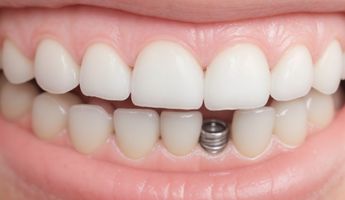
Find the best clinics for Dental Implant in Thailand
With Medijump you can browse 221 facilities offering Dental Implant procedures in Thailand. The cheapest price available is $83 in Bangkok. And for the cheapest price globally, prices start from $1 in Vietnam.
Dental Implant in Bangkok
Price: $ 83
Dental Implant in Rayong
Price: $ 695
Vietnam offers the best prices Worldwide
Price: $ 1
From 1 verified reviews
Julia Rylskova, 16 November 2021
The best clinic in Koh Samui🥰
From 1 verified reviews
สุภัทตรา ศรีโยวงค์, 12 June 2021
คุณหมอมือเบามากเลยจ้า พี่พนักงานให้คำแนะนำดีพูดเพราะน่ารัก
From 8 verified reviews
Marjorie, 11 June 2024
Excellent service! The chest x-ray was done quickly, and the results were explained to me in detail. Very satisfied.
From 379 verified reviews
Gamela, 01 August 2024
Excellent service! The consultation was detailed, and I felt confident in their expertise
From 25 verified reviews
Ifeoma, 02 August 2024
The veneers look incredibly natural, and I’ve received so many compliments on my smile. The clinic provided top-notch.
From 170 verified reviews
Effie, 26 June 2024
Great experience! The staff was friendly and the dental CT scan was quick and easy.
From 21 verified reviews
Odine, 22 August 2024
The dental CT scan at Tooth, Siam Square was quick and painless. The staff made me feel at ease throughout the entire process.
From 18 verified reviews
Aurora, 03 July 2024
The procedure was smooth and painless. The dentist explained everything clearly.
From 21 verified reviews
Alba, 25 November 2023
The staff was friendly and professional. My post and core treatment went perfectly. My tooth feels strong and looks great.
From 17 verified reviews
Hamisi, 26 July 2024
I was nervous about getting dental implants, but the team made me feel at ease. The results are fantastic, and I couldn't be happier with my new smile.
From 22 verified reviews
Dahlia, 24 April 2024
Efficient and effective service. The root canal was done in a single visit, and I had no complications afterwards. Highly satisfied.
From 15 verified reviews
Elizabeth, 25 July 2024
Excellent service and care. The bone graft treatment was explained clearly, and the recovery was quicker than I expected.
From 21 verified reviews
Esperanza, 03 August 2024
The blood test package at MedPark was thorough and the results came back quickly. Highly recommend.
From 21 verified reviews
Astrid, 04 July 2024
Excellent care from start to finish.
From 19 verified reviews
Fairuza, 18 June 2024
Excellent service and friendly staff. The dentist explained everything clearly during my root canal consultation.
From 20 verified reviews
Lilja, 25 July 2024
Great experience at Tooth, Siam Square. The root canal was done efficiently, and the dentist was very reassuring. Will definitely return for future dental needs
From 22 verified reviews
Helena joya, 04 June 2024
I had a wonderful experience at PMG Hospital. The staff was incredibly friendly and professional. My skin has never looked better after the chemical peel. Highly recommend.
From 19 verified reviews
Ingrid, 18 July 2024
I visited for a routine check-up and cleaning. The service was prompt, and the dentist was very knowledgeable. The clinic’s atmosphere is relaxing and professional.
From 17 verified reviews
Jhazala, 04 August 2024
Absolutely thrilled with my new smile! The team at Bangkok Dental Spa made the entire process seamless and stress-free.
From 17 verified reviews
Maya, 20 July 2024
I had a great experience at BIDC. The clinic is modern and clean, and the dental checkup was quick yet comprehensive. The dentist was very gentle and made me feel comfortable.
- Home
- Thailand
Compare Before & After Photos of _procedure_photos.phpDental Implant

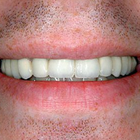
Front view


Front view
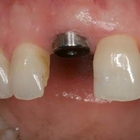
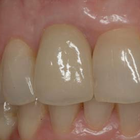
Front view
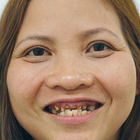

Front view


Front view
WHY US?
At Medijump, we're making medical easy. You can search, compare, discuss, and book your medical all in one place. We open the door to the best medical providers worldwide, saving you time and energy along the way, and it's all for FREE, no hidden fees, and no price markups guaranteed. So what are you waiting for?

Free

Best Price

Widest Selection

Risk-Free
What you need to know about Dental Implant in Thailand

A dental implant is a medical device that provide support to artificial teeth. It's surgically placed into the jaw to act as a replacement for the root of a missing or damaged tooth, which in turn serves to hold a replacement tooth or bridge. It functions and looks much like a real tooth, restoring your ability to chew and improves your overall appearance. Dental implant surgery is considered as a better alternative to dentures or bridgework that does not fit well. It also offers a great option for people when they do not have enough natural teeth roots left to build denture or bridgework replacements.
Since dental implants eventually fuse with your jawbone over the span of several months, it won’t make noise, slip, or cause bone damage the way dentures or bridgework might. Dental implants also enable natural speech, look and feel like your own teeth, make eating easier, and improves your appearance. However, the surgery may involve several stages, and, in some cases, it may require two separate visits to the clinic to complete. Ensure to look for a specialist in a reputable clinic for the best results.
What is the cost of Dental Implant in Thailand?
Price differences abound in Thailand for Dental Implant based on the clinic, the proficiency of the surgeon, and the individual requirements of the patients. It's essential to realize that dental insurance usually doesn't cover the entire bill for this treatment, though it might cover a part. Several dental clinics provide finance schemes or payment alternatives to assist in easing the financial burden. For more precise cost estimates, reach out to your dental service provider or a nearby clinic.
What does a Dental Implant Procedure Involve?
Dental implant surgery generally requires several stages. Each stage may be performed under general or local anesthetic. The first stage is removing the damaged tooth. Then, if your jawbone is too soft or not thick enough, your dentist may perform bone grafting to create a more solid base for the implant. The bone graft may be natural (taken from another part of your body) or synthetic (a bone-substitute material). If you only need minor bone grafting, the implant surgery can be performed on the same day. However, if you need a significant amount of bone graft, the implant surgery may have to be postponed until the transplanted bone grows enough new bone to support the dental implant.
The next stage after the damaged tooth removal and bone graft (if you need one) is placing the dental implant. To do this, your dentist makes an incision to expose the bone and puts the metal implant post deep into the bone. At this stage, you will still have a gap where your tooth is missing. Your dentist will place a temporary denture for appearance. Once the metal implant post is placed, osseointegration begins. This is a process where the jawbone grows into the surface of the implant and can take several months to complete. After osseointegration is complete, your dentist will place the abutment, which is a small connector post that will hold your new tooth. The final stage, after the abutment is placed, is placing the crown, which is the tooth-looking part. You can choose between a removable crown and a fixed crown.
How Long Should I Stay in Thailand for a Dental Implant Procedure?
The length of your stay in Thailand for a Dental Implant depends on numerous considerations like the intricacies of the procedure, the quantity of implants required, and your personal recovery process. Each stage of dental implant surgery is done in separate appointments. After each appointment, you should be able to leave the hospital or clinic right away. However, you should stay in Thailand for at least 2 weeks for completion of the work, the initial recovery time, and follow-up checkups.
What's the Recovery Time for Dental Implant Procedures?
The recuperation duration following a Dental Implant or dental implant operation can widely vary and is shaped by multiple aspects. Initial healing of the tissue might require only a handful of days, but complete osseointegration (the fusion of the implant with the jawbone) generally spans several months. This window could be extended for patients requiring auxiliary procedures such as bone grafts, or those with prevailing health issues that may impede the healing process.
Post-procedure, it's not unusual to experience a degree of discomfort, which could manifest as minor pain, swelling of your gums and face, skin and gum bruising, and slight bleeding. Such symptoms are a standard phase of the recovery process and should alleviate within a fortnight. In this interim, it's advisable to stick to a soft diet to not overload the implant site with undue pressure. Any strenuous physical exertion should be put off to circumvent potential complications.
Maintaining excellent oral hygiene is paramount to facilitate healing and stave off infection. Regular brushing and flossing, being particularly gentle around the surgical area, coupled with rinsing your oral cavity with warm saline water, can contribute to keeping the region hygienic.
What sort of Aftercare is Required for Dental Implant Procedures?
After each stage of surgery, you may have to eat soft foods. Since you may experience swelling, bruising, pain, and minor bleeding, your dentist will prescribe pain medications or antibiotics to help ease your discomfort. During your recovery period, you need to avoid smoking as it can contribute to implant failure and complications.
No special care is required for dental implants. Nonetheless, you need to practice good oral hygiene in order to maintain the implant and your remaining natural teeth. Make sure to brush your teeth twice a day, floss daily, and rinse your mouth with an antiseptic mouthwash. You also need to see your dentist regularly and avoid damaging habits, such as chewing hard items.
What's the Success Rate of Dental Implant Procedures?
The efficacy of Dental Implant, alternatively referred to as dental implants, in Thailand, is typically impressive, boasting effectiveness percentages as high as 98% in some studies. This positions dental implants as one of the most reliable procedures within dental care's realm. Nevertheless, it's worth mentioning that the success rates might fluctuate, influenced by several factors.
The patient's overall health is a key determinant of the thriving outcome of a dental implant procedure. Individuals exhibiting optimal health usually witness higher success rates. Pre-existing health issues like diabetes, osteoporosis, and periodontal ailments can theoretically impact the efficacy of the implant.
Additional contributing factors to the success rate encompass the quality and abundance of the individual's bone structure. Patients boasting plentiful, healthy bone are ordinarily the perfect candidates for dental implants. However, those who have experienced bone loss might need to undergo a bone grafting procedure before the implant procedure. This step can provide a robust base for the implant and enhance the chances of a successful result.
Are there Alternatives to Dental Implant Procedures?
If you are not a candidate for dental implant surgery, or you simply do not want to undergo the procedure, you can opt for the alternatives. The alternatives include:
- Mini dental implants, which is a small type of dental implants. The structure is similar to regular dental implants, but are somewhat smaller in size. Unlike regular dental implants, dentists can often place mini implants only in one visit using local anesthesia. You may also be able to use your new teeth on the same day.
- A same-day implant is essentially similar to traditional dental implants. However, your dentist performs the whole process in just one day, skipping the process of wound healing and osseointegration.
- Implant-supported dentures or All-on-4 is an alternative if you need to fix a complete upper or lower set of teeth. During this procedure, four to six implants are placed into your jawbone as a base to attach and stabilize your denture.
What Should You Expect Before and After the Dental Implant Procedure?
Grasping what lies ahead before and post the Dental Implant can lessen potential worries and guarantee you are fully equipped for the upcoming journey. Prior to the procedure, your dental practitioner will conduct an all-inclusive dental assessment. This check-up may encompass dental X-rays and sophisticated 3D imaging to examine the status of your oral cavity.
The dental professional will also explore your medical history. If you're suffering from specific heart disorders or orthopedic implants, your dental practitioner might suggest antibiotics to avert infection. A personalized treatment blueprint, customized to your circumstances, will be constructed. This strategy takes into account factors like the amount of teeth you need substituted and the state of your jawbone. The procedure is typically carried out under local anesthesia to mitigate any discomfort.
Subsequent to the operation, experiencing slight unease is usual. You might witness inflammation of your face and gums, discoloration of your skin and gums, soreness at the insertion area, and insignificant bleeding. Your dental specialist will recommend medications to soothe these indicators. In case inflation, unease, or any other complications intensify in the days post-operation, it's crucial to reach out to your oral surgeon. Post-operation will require you to consume mushy foods as the operated site recovers. Moreover, you'll be guided to abstain from smoking, as it can hinder recovery and influence the triumph of the dental implant.
Following the positioning of the implant, the healing process, and fusion with the bone (osseointegration) transpire over an extended period. During this interval, maintaining robust oral cleanliness is vital. This involves frequent brushing, the use of dental floss, and cleansing with an antibacterial mouthwash. Periodic dental examinations are obligatory to track progress and confirm the well-being and effectiveness of the implant.
What are Potential Risks of Dental Implant?
Despite Dental Implant boasting remarkable effectiveness, it is, as any surgical operation, not without risks and potential difficulties. The chances of encountering these issues are often minute and irregularities are infrequent, yet it remains critical for patients to comprehend these possibilities before undertaking the procedure.
Complications and side effects may include:
- Implant failure
- Nerve injury
- Infection
- Sinus problems
- Damage to surrounding structures, such as other teeth or blood vessels
How long does a Dental Implant last?
The durability of a Dental Implant is heavily reliant on the individual's oral cleanliness and general wellbeing. Nonetheless, with appropriate upkeep and care, dental implants have the potential to stand the test of time. The titanium pillar inserted into the jawbone during surgery is crafted to be everlasting, while the dental cap fastened to the anchor may necessitate substitution every decade or decade and a half due to normal usage. Yet, with outstanding dental management and habitual screenings, the cap has the potential for lifelong endurance.
Whilst the information presented here has been accurately sourced and verified by a medical professional for its accuracy, it is still advised to consult with your doctor before pursuing a medical treatment at one of the listed medical providers
No Time?
Tell us what you're looking for and we'll reachout to the top clinics all at once
Enquire Now

Popular Procedures in Thailand
Prices Start From $1

Prices Start From $1

Prices Start From $48

Prices Start From $1

Prices Start From $1

Prices Start From $11

Prices Start From $1

Prices Start From $45

Recommended Medical Centers in Thailand for Dental Implant

- Interpreter services
- Translation service
- Religious facilities
- Medical records transfer
- Medical travel insurance
- Health insurance coordination
- TV in the room
- Safe in the room
- Phone in the room
- Private rooms for patients available

- Interpreter services
- Translation service
- Religious facilities
- Medical records transfer
- Medical travel insurance
- Health insurance coordination
- TV in the room
- Safe in the room
- Phone in the room
- Private rooms for patients available

- Interpreter services
- Translation service
- Religious facilities
- Medical records transfer
- Medical travel insurance
- Health insurance coordination
- TV in the room
- Safe in the room
- Phone in the room
- Private rooms for patients available

- Interpreter services
- Translation service
- Religious facilities
- Medical records transfer
- Medical travel insurance
- Health insurance coordination
- TV in the room
- Safe in the room
- Phone in the room
- Private rooms for patients available

- Interpreter services
- Translation service
- Religious facilities
- Medical records transfer
- Medical travel insurance
- Health insurance coordination
- TV in the room
- Safe in the room
- Phone in the room
- Private rooms for patients available

- Interpreter services
- Translation service
- Religious facilities
- Medical records transfer
- Medical travel insurance
- Health insurance coordination
- TV in the room
- Safe in the room
- Phone in the room
- Private rooms for patients available

- Interpreter services
- Translation service
- Religious facilities
- Medical records transfer
- Medical travel insurance
- Health insurance coordination
- TV in the room
- Safe in the room
- Phone in the room
- Private rooms for patients available

- Interpreter services
- Translation service
- Religious facilities
- Medical records transfer
- Medical travel insurance
- Health insurance coordination
- TV in the room
- Safe in the room
- Phone in the room
- Private rooms for patients available

- Interpreter services
- Translation service
- Religious facilities
- Medical records transfer
- Medical travel insurance
- Health insurance coordination
- TV in the room
- Safe in the room
- Phone in the room
- Private rooms for patients available

- Interpreter services
- Translation service
- Religious facilities
- Medical records transfer
- Medical travel insurance
- Health insurance coordination
- TV in the room
- Safe in the room
- Phone in the room
- Private rooms for patients available
Dental Implant in and around Thailand
About Thailand
Thailand is consistently voted one of the most popular travel destinations in the world, leading the way for Asian countries with over 60 state-of-the-art JCI-accredited facilities. The country is renowned for its tropical beaches, floating markets, stunning royal palaces, and Buddhist temples. The vibrant capital, Bangkok, blends tradition and modernity with its ultramodern cityscape featuring brand-new high-rise condominiums side-by-side with quiet, serene canalside communities. As per the Tourism Authority of Thailand, Phuket, Koh Samui, Chiang Mai, Hua Hin, and Pattaya are the most sought-after tourist spots outside Bangkok, each boasting excellent yacht chartering opportunities.
Each year, Thailand opens its doors to hundreds of thousands of medical tourists. These individuals traverse the globe to receive treatment, with a significant number hailing from the local SE Asia region, Australia, the United States, and the Middle East. Recently, there has been an upsurge in the number of visitors coming in from China for medical purposes.
The reasons for Thailand's popularity as a medical tourism destination are its outstanding private healthcare system, attractive tropical climate, and competitive pricing. In the list of top medical tourism destinations worldwide, Thailand currently holds the third position. The procedures that attract most patients are cosmetic surgeries, including breast augmentations, gender reassignment surgery, and CoolSculpting, along with cardiac surgery, orthopedics, and urology.
Popular Parts of Thailand
Thailand, with a population of just under 70 million people spread over an area of around 500,000 square kilometers, has several regions and cities that are widely popular with both natives and tourists. Offering a diverse blend of urban and rural experiences, beach life and inland natural beauty, each part of Thailand offers a unique angle into the rich and complex Thai culture.
Arguably the most popular area of Thailand is the capital city, Bangkok. Consistently ranked as one of the most visited cities in the world, Bangkok is an ever-buzzing urban hub with its busy streets, modern lifestyle, magnificent temples and opulent palace, alongside a pulsating nightlife. This city is typically the entry gateway for a vast majority of the 30 million tourists who visit Thailand each year. Known for its glimmering cityscape and vibrant food scene, Bangkok is indeed a compulsory stop in every traveler's itinerary.
While Bangkok is the country's urban heart, there's more to Thailand than just its capital. Among the other popular regions are the beachside island paradise of Phuket and Koh Samui, the city of Pattaya, and Hua Hin - each of them a haven for beach lovers and anyone seeking a laid-back vibe away from bustling city life. However, for those who prefer the call of the inland and a dash of adventure, Chiang Mai, nestled in the lush jungles of northern Thailand offers a refreshing and unique proposition with its derivative local culture, serene temples and interaction with native wildlife.
Weather and Climate in Thailand
Known for its truly tropical climate and scorching temperatures, Thailand, in general, is hot and humid all year round. The coastal locations do benefit from the cooling sea breeze, a luxury urban Bangkok is denied. Average temperatures range from 28°C (82°F) up to 35°C (95°F). However, during the Hot Season (March to June), temperatures can top 40°C (104°F).
The infamous Rainy Season tends to start in July and continue through to October; during this time expect heavy rainfall, often amounting to flooding in some areas. It will remain warm to hot but humidity levels will rise and the mosquitos will come out to play!
November to February is often referred to as the Cool Season when less rain is expected and the temperatures tend not to rise above 35°C (95°F).
From a tourist perspective; the High Season lasts from November to March and the Low Season from April to October. But be aware of the Shoulder Seasons of April to June and September to October, when Thailand is less impacted by the Rainy Season and less busy with tourists – these can be the ideal times to visit.
In a nutshell, Thailand is a Shorts and T-shirt Country, you’re never really going to be cold, so pack light; shorts, t-shirts, vests, skirts, singlets, and light dresses. Maybe pack jeans and shoes if you’re planning on going to a swanky roof-top bar in Bangkok or to a temple where flip-flops are not acceptable.
Don’t forget mosquito spray as the little pests can get everywhere; big ones and little ones! Always protect against the sun; with high factor sunscreen and UV-protective sunglasses. The usual medications found at home should be available in most pharmacies.
Getting around in Thailand
With the Suvarnabhumi International Airport being serviced by some of the world’s major airlines, tourists can fly into Thailand from almost anywhere in the world, sometimes with a connection along the way. All the popular regions have their own international airports, with the exception of Pattaya, which is just a 90-minute taxi ride from Bangkok. However, arrival destinations are slightly limited outside of Bangkok, but the likes of Emirates and Qatar Airways will fly into Phuket International Airport. The rest, mostly fly in from local countries on budget airlines, including Scoot, SilkAir, AirAsia, and Lion Air to name a few.
For domestic flights, the airports are nicely linked in Thailand with flights from as little as $45 USD one way. There are several budget airlines servicing these routes, including Thai Lion Air, AirAsia, Nok Air, Thai Airways, Bangkok Airways, and Thai Smile.
The train allows for even cheaper travel within Thailand and is far more comfortable than spending hours sitting on a bus. Bangkok has the BTS, or Skytrain, which allows for fast transfer from the airport into the city. Given the traffic in central Bangkok, the BTS offers a great alternative to being stuck in traffic jams.
Taxis are great, however, be sure to confirm the price before you begin your journey or better still, insist the ride goes on the meter – that is how you guarantee the cheapest and fairest price. But expect traffic in the city and any built-up areas.
Tourist Visas in Thailand
Before you travel to Thailand, it is important to stay updated with the latest visa requirements. While a number of countries are eligible for visa-free entry, the rules can sometimes shift, making it essential to verify before you travel.
If you are travelling from countries like the United Kingdom, the United States, Germany, Australia, Singapore, Canada, France, Italy, Japan, New Zealand, and South Korea can enjoy a stay of up to 30 days in Thailand without needing a visa. On the other hand, if you are visiting from China, India, Myanmar, Laos, Cambodia, Bhutan, Nepal, Bangladesh, Sri Lanka, Pakistan, and Uzbekistan, you will be granted the facility of a visa on arrival.
To get a visa on arrival here are the requirements:
1. You need to have a valid passport with at least 6 months of remaining validity.
2: You would need to show proof of a round-trip ticket within 30 days and confirmation of your accommodation for the first night in Thailand.
3. You need to demonstrate that you have sufficient funds for your visit, which is 10,000 THB per person or 20,000 THB per family.
Don't forget to carry a recent passport-sized photograph. The fee for a visa on arrival is 2,000 THB, and you can pay it via cash or credit card.
For more information, click here.
Additional Information
- The Thai Baht (THB) is the local currency. 1 USD is approximately around 34.5559 on average as of 2023.
- ATMs are readily available across Thailand and accept virtually all major bank cards (Visa, Mastercard). Credit card payment is accepted in most established restaurants and outlets, with the more local food vendors, for example, only accepting cash.
- Thai is the local language but due to the extremely well-established tourism industry in Thailand, English is spoken by most locals who work with tourists, and often signs will have an English translation.
- Buddhism is the primary religion in Thailand, with a large Muslim population in the south. The Royal Family is deeply revered throughout the country and should never be disrespected.
- There are many public holidays in Thailand, which aren’t always on the same day each year, including Songkran (Thai New Year), which is celebrated in mid-April, Labor Day, and Coronation Day in early May, Asanha Buja in July and Constitution Day in December.
Popular Searches
- Plastic Surgery in Thailand
- Dental Implants in Thailand
- Hair Transplant in Thailand
- Breast Augmentation Thailand
- Gastric Sleeve in Thailand
- Gender Reassignment Surgery in Thailand
- Laser Hair Removal in Bangkok
- Botox in Bangkok
- Dermatology in Bangkok
- Breast Augmentation in Bangkok
- Coolsculpting in Bangkok
- Veneers in Turkey
- Hair Transplant in Turkey
- Rhinoplasty in Turkey
- Stem Cell Therapy in Mexico
- Rhinoplasty in Mexico
- Liposuction in Mexico
- Coolsculpting in Tijuana
- Rhinoplasty in Korea
- Scar Removal in Korea
- Gastric Sleeve in Turkey
- Bone Marrow Transplant in India
- Invisalign in Malaysia
- Plastic Surgery in the Dominican Republic
- Tummy Tuck in the Dominican Republic
- Plastic and Cosmetic Surgery in Poland
- Rhinoplasty in Poland
- Hair Implant in Poland
- Dental Implants in Poland
- IVF in Turkey



















